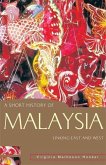William Marsden's "The History of Sumatra" is a groundbreaking work that combines meticulous scholarship with vivid narratives, offering an in-depth exploration of the island's geography, cultures, and historical developments. Written in the late 18th century, Marsden employs a stylistic approach that blends empirical observation with rich, descriptive language, making the text both informative and engaging. The book is situated within the context of European colonial expansion, providing insight into the Dutch and British colonial interactions with the indigenous population of Sumatra, thus illuminating the complexities of early global trade networks and their socio-political ramifications. William Marsden, a British diplomat and linguist, had a profound fascination with Southeast Asia, fueled by his extensive travels and interactions with diverse cultures during his tenure in the region. His dedication to the study of local customs, beliefs, and languages enriched his understanding and appreciation for Sumatra's rich heritage, informing his detailed accounts and analyses. Marsden's extensive knowledge and firsthand experiences allow him to provide a nuanced perspective that is both authentic and enlightening. This book is highly recommended for readers interested in Southeast Asian history, colonial studies, and the intersection of culture and geography. Marsden's text serves not only as an academic resource but also as a captivating narrative that invites readers to journey through the vibrant tapestry of Sumatra's past. It is an essential addition to any library focused on historical inquiry and cross-cultural understanding.
Dieser Download kann aus rechtlichen Gründen nur mit Rechnungsadresse in A, B, BG, CY, CZ, D, DK, EW, E, FIN, F, GR, H, IRL, I, LT, L, LR, M, NL, PL, P, R, S, SLO, SK ausgeliefert werden.









